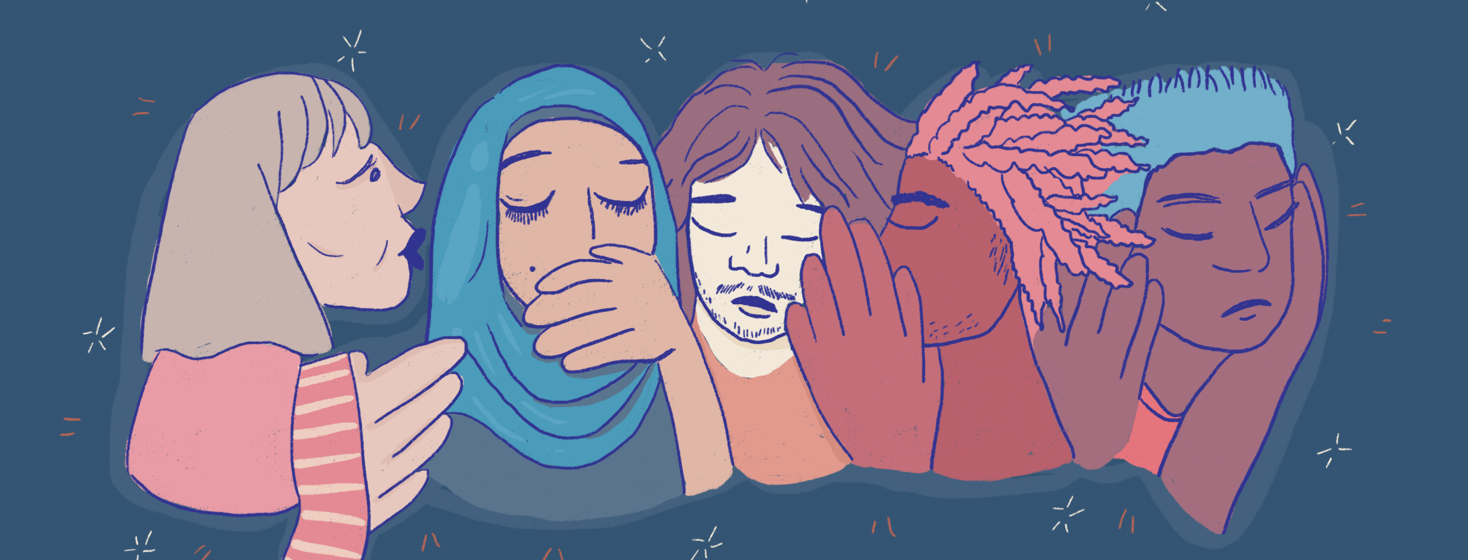Do I Tell or Do I Not?
“My Wife Was Dying, and We Didn’t Tell Our Children” is the story of a man and woman who hid from their three children the fact that their mother was going through cancer treatments. My first reaction was not positive. But, as I read the couple’s rationale, I could better understand why they did what they did.
I'm an open book
I am an open book. If you ask, I will tell. Even if you don’t ask, I might tell! I believe in honesty.
But, as I say that, I must also admit that when I was first diagnosed with stage IV lung cancer, my husband and I made a pact. While we never considered keeping the lung cancer diagnosis a secret, we did decide together that we would present it in as positive a light as possible to our adult son and my mom.
We knew that they would be the most upset and worried when they learned that I was sick. We didn’t want them to fret any more than was necessary. Of course, as we all know, telling someone you have lung cancer, no matter what kind of spin you put on it, is going to worry those who love you.
So, maybe our plan didn’t exactly work. I am certain that my mom and our son worried far more than they even let us know, especially at first. As the years go on, the in-your-face distress wanes, I think, though always there will be at least a hint of worry.
Everyone's approach is unique
While we have been very upfront about my disease, I know there are others who have kept theirs secret from all but their closest friends and relatives. I guess everyone deals with disease and stress in their own way.
I understand not wanting to tell the world that you have cancer. People look at you differently. You’re treated differently. Sometimes, people avoid you once they know you’re sick with a terminal illness. Other times, they want to protect you and treat you with kid gloves.
Reflecting on one family's story
In the case of the parents about whom the article was written, the decision to keep the mother’s disease a secret from their children meant it also had to be kept secret from nearly everyone else. Otherwise, word would have eventually made it back to their daughters that their mom was sick. Not just sick, dying.
It wasn’t the cancer itself that the couple didn’t want the girls to know about. It was the fact that the doctors had given their mother 1,000 days to live. What the couple hoped to do was spare their children from the fate of crossing the days off the calendar until their mother was supposed to die: 1,000, 999, 998, ... 100, 99 ...
The couple finally did have to tell their daughters that their mom was undergoing cancer treatment. After all, she lost her hair. But, until the very end of their mother’s life, the parents hid the fact that the mom was going to die from her disease.
There are two sides to every story
I have mixed emotions about this. When she was diagnosed, the children were 8, 9, and 11. By the time she died, the girls were nearly 18, 19, and 21. Protecting the kids from full knowledge and worry when they were very young seems logical in most ways. They were likely too young to fully understand critical illness and death anyway.
I must wonder, though, as the girls grew to womanhood, would it have been fairer to share a little more of their mother’s journey with them? According to the article, the girls commended their parents for allowing them to continue living their lives without the worry that their mom was going to die. They didn’t feel cheated out of knowing that their time with their mom was going to be more limited than anyone would wish. Furthermore, their mom felt great joy in watching her daughters live their lives without the stress of knowing she was dying.
Do you tell others about your cancer?
So, I don’t know. What do you think? How have you reacted? Are you an open book, a semi-closed book that tells only what is necessary, or a completely closed book to all but those closest to you?
Truth be told, I can argue pros and cons to every approach. In the end, I think you must do what you think is best for you and those you love.

Join the conversation